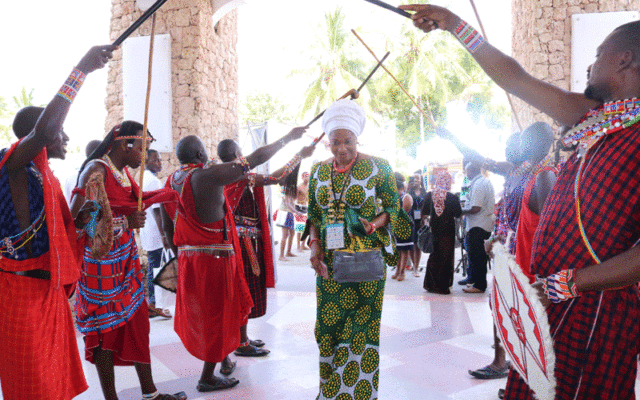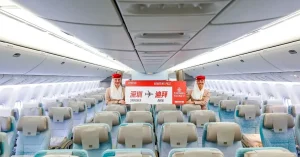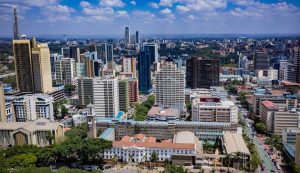Coronavirus is the biggest disrupter since World War Two, upending the local hospitality industry to an extent that the sector might take 12 to 18 months to recover.
Mwingirwa Kithure
The tourism industry has been the proverbial goose that lays the golden egg to Kenya’s economy, with the country relying heavily on the sector as a source of foreign exchange and employment.
The sector directly employs more than a million people, with an estimated two million depending on it indirectly.
Last year, the industry earned Sh163 billion and welcomed 2.05 million tourists.
Until the monster called coronavirus reared its ugly head, 2020 was expected to be the industry’s best.
Arrivals were projected to surpass 2.5 million due to tourism marketing efforts and countless international conferences lined up to take place in the country throughout the year.
When Meetings Events Conferences and Incentives (MICE) are the kingpin of a country’s tourism industry strategy, then it’s a boom business for all.
Airlines, airports, taxi operators, hotels, restaurants, curio shops, museums, casinos, national parks, bars and even brothels reap.
But like a ghost from nowhere, Covid-19 struck hard starting February, stopping all lofty dreams, with those big sum revenue projections now a pipe dream.
You can no longer sit down at your favourite restaurant and enjoy an exquisite gourmet because social distancing rules stipulates that you can only enjoy the delicacy as a take-away. Your aerobics and Spa moments must wait too.
Skeleton staff
In a few days, the usual busy and charming porter was all forlorn in lonely lobbies. Likewise, the receptionist became idle, sheepishly smiling at the empty lobby, punctuating her wry smile with an occasional yawn.
Hotels are empty save for a skeleton staff working on rotational shifts. “The outbreak presents the tourism sector in Kenya and beyond with a major headache and a challenge that must be surmounted somehow,” says Barnabas Wamoto, General Manager, Crowne Plaza Nairobi Airport Hotel.
“The nosedive in tourism earnings this year means that there will be serious struggle in the hospitality industry for entities to stay afloat. Presently, institutions are implementing various fire-fighting strategies to mitigate the impact of Covid-19,” he adds.
Wamoto says some decisions being taken are painful, but necessary to guarantee organisational survival during this crisis, but what matters are concrete actions that hotels and the hospitality industry in general are taking to ensure they are ready when leisure and business travellers resumes.
Calls for resilience
He warns that even then, things will take long to return post 2020. “It will not be a nightfall fix. Tourists and international conferences will not return en-mass soon, since travel will not be a priority for most,” he adds.
Roberto Simone, the Cluster General Manager of Villa Rosa Kempinski and Olare Mara Kempinski Camp, says Covid-19 is the biggest disrupter since World War Two and the Kenyan hospitality industry, just like in the rest of the world, has been hit hard and the effects will be felt for years to come.
“There is common industrial consensus that the 2019 output level will not be reached any time soon.
Most likely, it will take 12 to 18 months,” Roberto observes, adding that the peripheral economies of many countries will take two to three years to recover.
“Whilst among economists, there is consensus in predicting — for developed economies — a V or U shape demand recovery, driven by the household consumption, the effects on emerging, middle and poor countries will take additional time,” says Roberto.
The GM who is in his current position for almost a year now argues that the Kenyan hospitality industry has to be resilient, keep alive and protect the business ventures and prepare the new normal to come.
“Post-Covid-19, most likely, will present challenges as new consumers patterns emerge, with changes in priorities during the selection decision-making process,” says Roberto.
He says we are witnessing the death of “proximity business” propelled by 20 years of globalisation for “distance matter”.
Hospitality units need to be prepared to a more accustomed home space potential consumer than pre-Covid-19 era.
This will change the approach in terms of service delivery and put great pressure digital marketing teams.
The GM notes that globally, the pandemic will accelerate de-globalisation. Most likely, the virus will also shape the world towards regional trade blocs, which will share same standards and policies.
Permanent behaviour change
“Should the above happen, then this will be the first catalysis that will affect in first instance, the aviation industry and consequently, the entire hospitality industry.
The concerning scenario is a serious call for Kenya hospitality industry to re-strategise its offers, look into more regional domestic feeder markets and as well, target new consumer patterns,” says Roberto.
David Gachuru, General Manager at Sarova Panafric says the crisis is of unprecedented magnitude, but preaches hope and a rise from the doom. “Post-Covid-19 can better be looked at using a triangular approach: First, what will change permanently? Secondly what has changed, but will not be sustained and third, what further change can one influence?” says Gichuru.
The career hotelier with over 20-year experience says people’s behaviour will change permanently.
“People will be afraid of hygiene and their health. So, hoteliers must learn how to stay hygienic no matter what,” he says.
The GM says going forward, social distance will be critical for a long time to come. Air travel will change drastically, with flying becoming expensive due to less seat capacity as social distance becomes the norm.
Regrettably as the cost of running business rises due to dwindling fortunes, Gachuru predicts that hotel staff numbers will fall.
Sales and marketing personnel will be forced to change strategy and be more digital savvy, otherwise they will be rendered irrelevant.
Gachuru expects that what will not change much is socialisation. With time, locals will resume their normal lives amid heightened caution and hotel occupancies will recover.
He foresees a bad patch for hotels before things brighten up. “Still, hotels will remain.
You don’t sell a cow because you have no skills to milk it. Simply, you hand over to the milkman and retain the cow! he advises.
Source: https://www.pd.co.ke/news/time-to-plan-for-kenyas-tourism-industry-post-covid-19-pandemic-33934/




